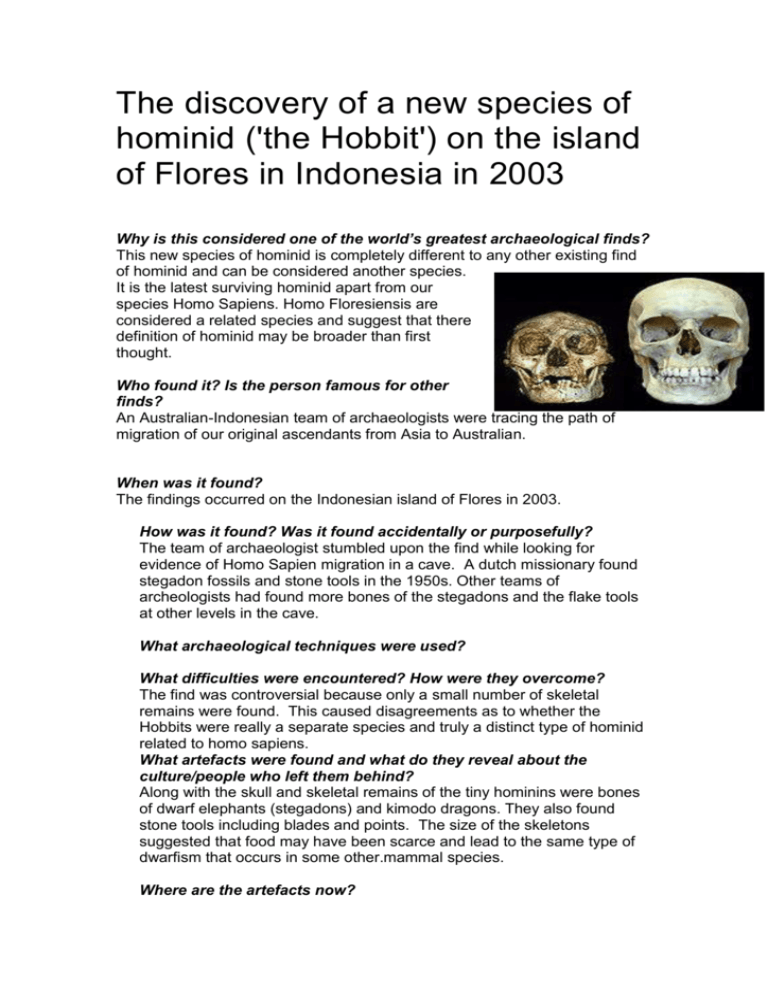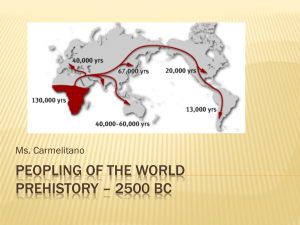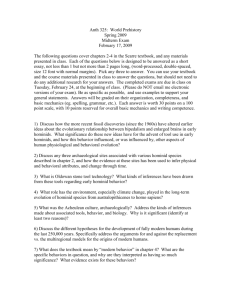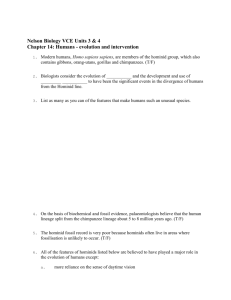the Hobbit
advertisement

The discovery of a new species of
hominid ('the Hobbit') on the island
of Flores in Indonesia in 2003
Why is this considered one of the world’s greatest archaeological finds?
This new species of hominid is completely different to any other existing find
of hominid and can be considered another species.
It is the latest surviving hominid apart from our
species Homo Sapiens. Homo Floresiensis are
considered a related species and suggest that there
definition of hominid may be broader than first
thought.
Who found it? Is the person famous for other
finds?
An Australian-Indonesian team of archaeologists were tracing the path of
migration of our original ascendants from Asia to Australian.
When was it found?
The findings occurred on the Indonesian island of Flores in 2003.
How was it found? Was it found accidentally or purposefully?
The team of archaeologist stumbled upon the find while looking for
evidence of Homo Sapien migration in a cave. A dutch missionary found
stegadon fossils and stone tools in the 1950s. Other teams of
archeologists had found more bones of the stegadons and the flake tools
at other levels in the cave.
What archaeological techniques were used?
What difficulties were encountered? How were they overcome?
The find was controversial because only a small number of skeletal
remains were found. This caused disagreements as to whether the
Hobbits were really a separate species and truly a distinct type of hominid
related to homo sapiens.
What artefacts were found and what do they reveal about the
culture/people who left them behind?
Along with the skull and skeletal remains of the tiny hominins were bones
of dwarf elephants (stegadons) and kimodo dragons. They also found
stone tools including blades and points. The size of the skeletons
suggested that food may have been scarce and lead to the same type of
dwarfism that occurs in some other.mammal species.
Where are the artefacts now?
Can people view them?
What has the find taught you about history and the work of
archaeologists and historians?
That although the
Interesting Facts
The researchers were from the University of New England.
The discovery of the tiny human skeletons with the other bones evokes
images of little people riding dwarf elephants and hunting dragons.
This amazing find could just be a deformed family of hominids.











